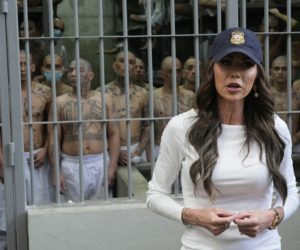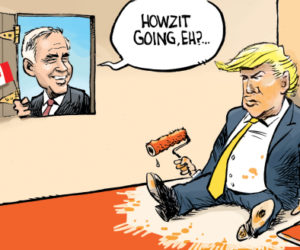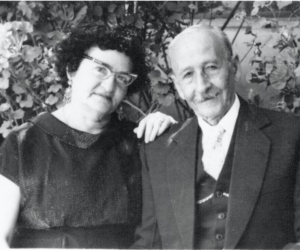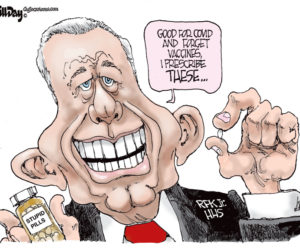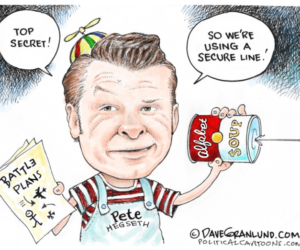
The news that Karl Rove wasn’t going to be indicted after all — despite a growing unspoken conventional wisdom in many press reports that he would and a flat assertion that he would by one Internet website — has been greeted with all kinds of reactions and analyses. Most of them partisan (and predictable).
But Walter Shapiro, the moderate former USA Today columnist who now writes on Salon, suggests the non-indictment of President George W. Bush’s political maven is good for the country and probably for the Democrats as well. Here are some key portions from his must-read column:
The reaction to [special prosecutor Patrick] Fitzgerald’s decision not to try to send Karl Rove off to a new career working in a prison laundry was as predictable as the plot of a “Road Runner” cartoon. The Republican National Committee rushed out a smug press release headlined, “Wrong Again: Prejudging Karl Rove Is Latest Example of Democrats’ Overheated Rhetoric and False Statements.” Downbeat Democrats struggled to keep hope alive by vainly calling for a congressional investigation (veteran California Rep. Henry Waxman) and pleading for an after-action report from Fitzgerald (Chuck Schumer, who heads the Democratic Senate Campaign Committee).
Indeed: you could have read many news and blog commentaries and you could guess what party the writer belonged to within the first few sentences. Shapiro argues, though that there is more to consider:
But beyond the partisan sound-bites, there is a compelling argument that the nation — and possibly even the Democrats — is better off with Rove free to roam the West Wing plotting strategy for the 2006 Republican campaigns rather than hunkered down in his lawyer’s office preparing for the trial of century.
Special prosecutors bring with them the proven danger of Starr-chamber justice, as the Ahab-like pursuit of Bill Clinton demonstrated. Fitzgerald, in contrast, displayed uncommon restraint last October by limiting himself to going after Scooter Libby, Dick Cheney’s former chief of staff, for what appears to be, judging from the indictment, a brazen case of perjury.
Clearly, Rove presented Fitzgerald with a much-closer-to-the-line judgment call. Nearly eight months and five Rove appearances before a new Plamegate grand jury came and went without a verdict from the special prosecutor. The indictment of a president’s closest advisor should not be a heads-it-will-be-leg-irons, tails-it-will-be-exoneration coin-flip decision. A banana-republic quality clings to nations that fight out all their political differences in criminal courts.
Shapiro then goes into a bit more detail about the Libby case and the difference between a legal proceeding and a Congressional investigation before he gets to key question:
Preparing for a possible Rove indictment, I had been asking Democratic strategists over the past month which would be better for the party’s political fortunes in November — criminal charges against the man known as “Bush’s brain” or gasoline at $4 a gallon? The standard answer was that gas prices (even at their current levels) would have a far greater influence on the voters than mug shots of Rove.
A few Democrats theorized that criminal prosecution of Rove might strengthen the “culture of corruption” argument that was once central to efforts to win back the House. But as the recent special election in California showed (where Democrats could not even win the House seat of a Republican who went to prison for bribery) the ethics issue is not an automatic vote-getter. Moreover, Rove is a bit like defrocked House leader Tom DeLay — revered by Republicans, reviled by Democrats and largely unknown to swing voters.
Moreover, the notion may be heresy in political circles, but there are recent indications that Rove may not be the greatest political chess player since Metternich remade the map of Europe after the Napoleonic wars.
He notes some of Rove’s recent stumbles, then adds: “Six years into his tenure in the White House, Rove may be running on empty, just like the president whom he serves.”
And, indeed, there is little sign that Rove will change the playbook. The two key questions are (a) whether this playbook is still effective given the changes since 2004 (cynics might ask, for instance, if as we draw closer to November we’ll start soon seeing more Homeland Security terrorism color-code alerts — those alerts that were all-the-rage leading up to 2004 but largely vanished after the vote was held) and (b) whether the Democrats, since they know what’s basically in the playbook havetheir own counter playbook to use. Or do they just intend to wing it? Shapiro concludes:
Fitzgerald, by not indicting Rove, may have saved the Democrats from getting too caught up in the politics of vengeance. There was always an analogy to Madame Defarge sitting by the guillotine knitting in the way that Bush haters reveled in every unreliable rumor about a Rove indictment.
Vendettas may be emotionally satisfying, but they rarely provide a formula for winning elections. In fact, the best way to get back at Rove is not through criminal prosecution but by forcing him to read an Election Night speech conceding that the Democrats have won back Congress.
And that is a reality that is hard to get across to many folks: many of the voters who will decide elections don’t know much about Karl Rove and they’re worried about other things that they hope candidates (and a party) will address. In the end, the Rove issue wouldn’t be as effective as some other issues out there — IF those issues are being articulated along with and solutions to problems.
Just being the anti-Bush or anti-Rove won’t do. In fact, Rove is probably hoping Democrats do run as the anti-Rove. With a handcuffed Rove taken off the election year table, other issues will have to be carved up and served up to voters.
UPDATE: The Talking Dog’s take on the latest Karl Rove development.
Joe Gandelman is a former fulltime journalist who freelanced in India, Spain, Bangladesh and Cypress writing for publications such as the Christian Science Monitor and Newsweek. He also did radio reports from Madrid for NPR’s All Things Considered. He has worked on two U.S. newspapers and quit the news biz in 1990 to go into entertainment. He also has written for The Week and several online publications, did a column for Cagle Cartoons Syndicate and has appeared on CNN.

